Sunday, July 13, 2014
Shame
Picture the scene: an average Sunday morning at Agitation Towers, yours truly drinking coffee, eating toast, watching ‘Shame’ on DVD and becoming more intimately acquainted with Michael Fassbender than I’d anticipated. Five minutes in and the guy’s walking bare-ass naked around his aesthetically severe apartment. And not just bare-ass, either. There ought to be a separate screen credit for Fassbender Junior.
‘Shame’ continues the cinema of body politic that ‘Hunger’ utilized. But here the focus is on internalization rather than institutionalization. Fassbender plays Brandon, an Irish-born New Yorker with a successful job (what he does is never really defined), a spacious apartment, an extensive vinyl collection (the first LP we hear him play is Bach’s Goldberg Variations) and a major addiction to sex that he sort-of controls by paying for hookers and watching online porn. At the office, his PC is carted off by the IT bods due to a virus, a subplot that plays out as predictably as you’d imagine (Brandon gets hauled in by his boss over the hard-drive content) only to peter out (there’s some vague suggestion that Brandon’s intern is left to shoulder the blame, not that we’re ever introduced to Brandon’s intern).
Brandon’s overtly buttoned-down lifestyle is disrupted when his needy, flaky and hectoring sister Sissy (Carey Mulligan) decamps to his apartment following a relationship meltdown. Sissy is a fucking annoying character, both for the way she’s written and Mulligan’s histrionic performance. I’ll admit to having found Mulligan curiously overrated ever since ‘An Education’, and the understated yet deeply committed performance that Fassbender gives here only shows up Mulligan’s weaknesses. Plus, her rendition of ‘New York, New York’ is so painful that it probably contravenes the Geneva Convention. What Sissy’s presence does – in terms of the very slender narrative (‘Shame’ is essentially a series of analytically staged vignettes, loosely strung together) – is dynamite Brandon out of the safety of his apartment, the four walls of which have thus far provided containment for his extracurricular activities.
No longer able to entertain hookers and dictate the mood and the staging of the encounter (“do it slowly”), he is forced to trawl bars and clubs. His emotionless façade erupts in anger coated with self-loathing when Sissy laughingly catches him masturbating. He black-bags his porn stash and laptop and leaves them for the garbage men. Even the orderliness of the apartment itself is violated: she blares disco music instead of his carefully tasteful vinyl; strews her possessions everywhere; provides a constant stream of verbiage that denies him quietness and solitude. Ultimately, she brings Brandon’s douchebag boss David (James Badge Dale) back to the apartment and “entertains” him.
It’s during this less than amenable period of flat-sharing that Brandon finds himself drawn to a colleague, Marianne (Nicole Beharie). Their awkward first date, in an upmarket restaurant, the waiter from hell flitting around them incessantly, is analogous to the 17-minute dialogue-across-the-table scene in ‘Hunger’, and is similarly placed in the film – almost exactly to the minute. But whereas ‘Hunger’ used its epic single-take dialogue scene to reveal Bobby Sands, the restaurant scene in ‘Shame’ is an exercise in watching Brandon conceal. It’s not until after they’ve left the eaterie that anything remotely answering to the description of natural conversation happens between them. Even then, Marianne is unsure about seeing him again. However, Brandon persuades her to a hotel the next day (on the firm’s time!) and things come to an abrupt and humiliating halt when he’s unable to perform.
Thus it is that the film earns its title. Embarrassed at his sister’s glimpse into his sexual obsessions and unable to connect with her emotionally; ashamed at his failing with Marianne; and disgusted at the despoiling of the sanctuary of his apartment by Sissy and David’s dalliance, he becomes reliant on self-debasement and increasingly depersonalised encounters into to achieve gratification. The last twenty minutes or so document a descent into complete emotional negation – he unspools explicit chat-up lines to a woman in a bar, earning himself a beating from her partner; he follows a rent boy into a gay club; he engages in the angriest and least erotic threesome in the history of cinema – until the resolution of Sissy’s own instabilities jolts him back into something like the real world.
At its best, ‘Shame’ rigorously and intelligently debates sexual dysfunctionalism and tries to define where the tipping point is when emotion is so persistently suppressed in favour of the purely physical. McQueen’s minimalist script, co-written with Abi Morgan, sometimes helps this debate by paring away peripheral details: Brandon’s job is a good example, in that for the film to work, we don’t really need to know what he does beyond the fact that he earns enough to rent a swish apartment and pay high-class hookers in cash, and therefore his office is generic, his work based conversations are generic, and whether he works in advertising, PR, HR, information, data analysis or graphic design I don’t know and don’t care. And I love the fact that the film recognises this non-requirement.
At the same time, though, the characters of David (who sleeps with Sissy despite being married and is therefore contrasted with Brandon in that both essentially pursue sexual encounters outside the relationship-based social norm) and Marianne (who represents said social norm) are integral to Brandon’s job, and the lack of consequences in Brandon’s PC being clogged with porn, not to mention Brandon and Marianne’s sneaking off to a hotel for nookie in the middle of a working day, also without consequence, strike small but niggling false notes. Likewise, the culmination of Sissy’s behavioural pattern lurches the film into melodrama, particularly a late-in-the-day suggestion of some kind of intuitive bond between them. Worst is McQueen’s depiction of the gay club, as breathlessly prurient and unabashedly clichéd as anything since Friedkin’s ‘Cruising’.
Where ‘Shame’ really delivers, though, is in Fassbender’s performance. He’s beyond good, and the level of trust that must operate between him and McQueen can only be guessed (and marvelled) at! This is raw, physical acting; as demanding and – in every sense of the word – naked as anything in ‘Hunger’. Though the two films are intensely different, McQueen’s aesthetic provides correlation: the extended, dialogue-heavy single takes; scenes of his protagonists running; detailed attention to the rhythms and repetitions of his characters’ lives; a steely palette that mirrors the dehumanisation of prison in ‘Hunger’ and Brandon’s prison-of-the-self in ‘Shame’. And Michael Fassbender in career-defining roles. On the basis of these two films alone, McQueen/Fassbender rank equal to Scorsese/de Niro in the pantheon of director/actor partnerships.
Subscribe to:
Post Comments (Atom)
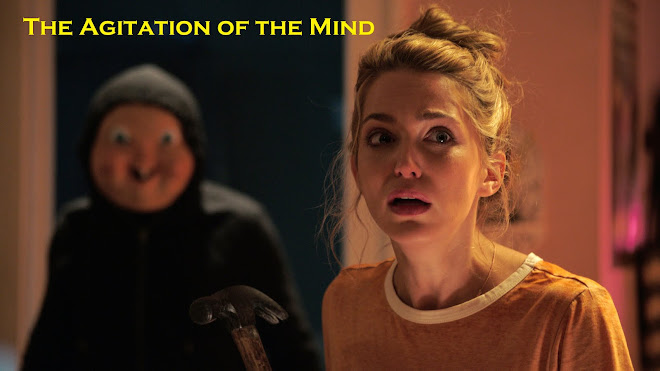





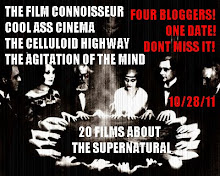
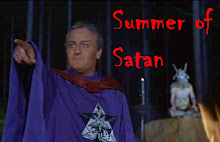
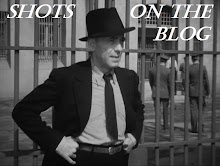











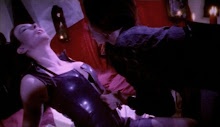





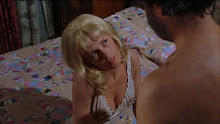









No comments:
Post a Comment